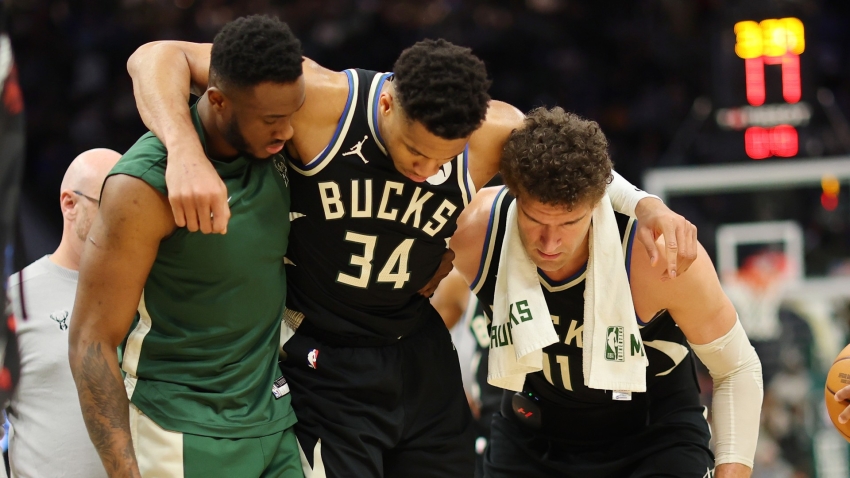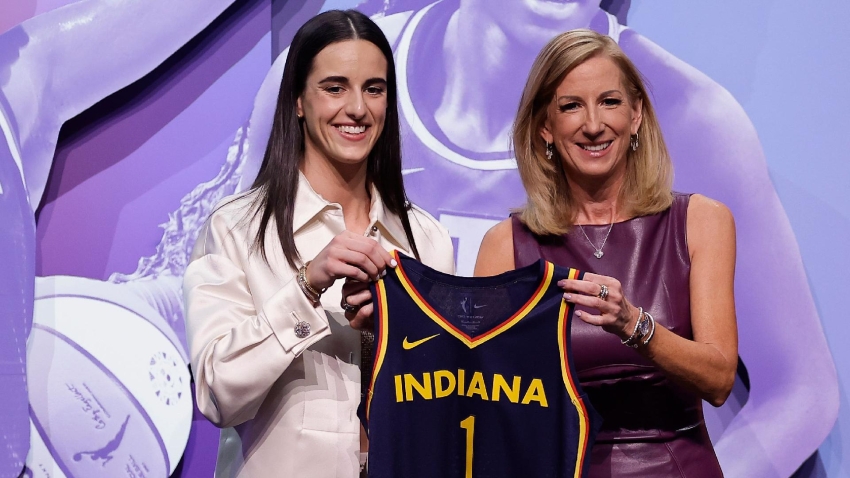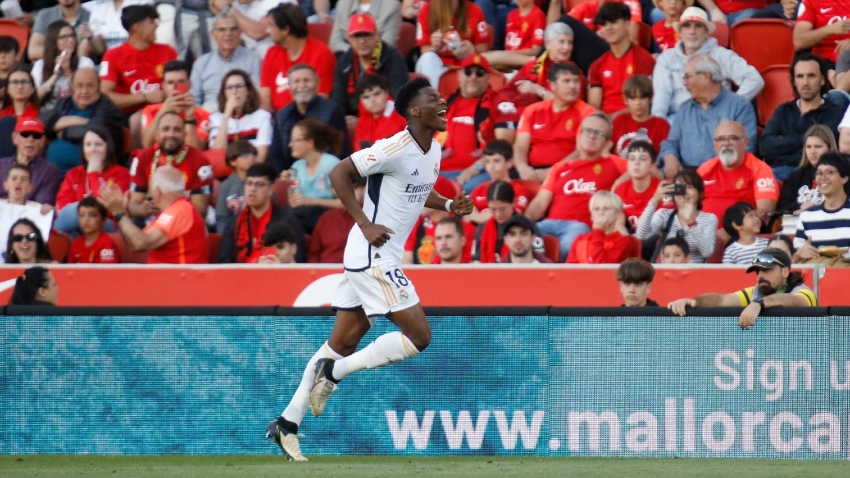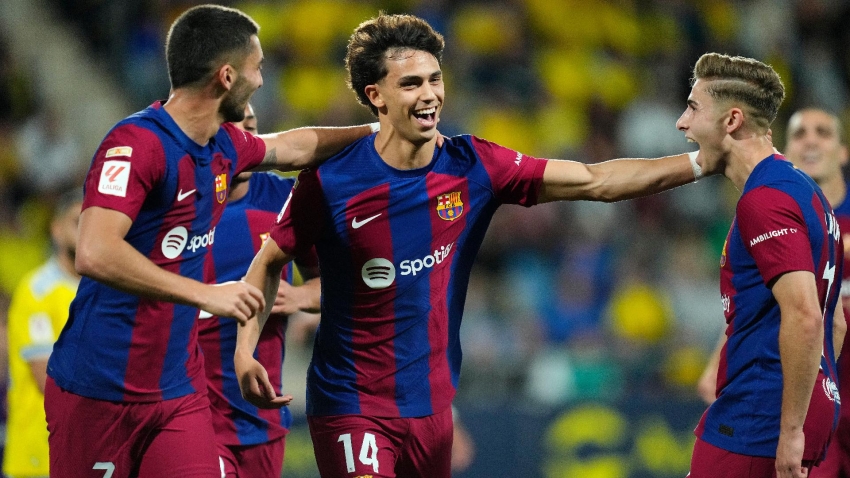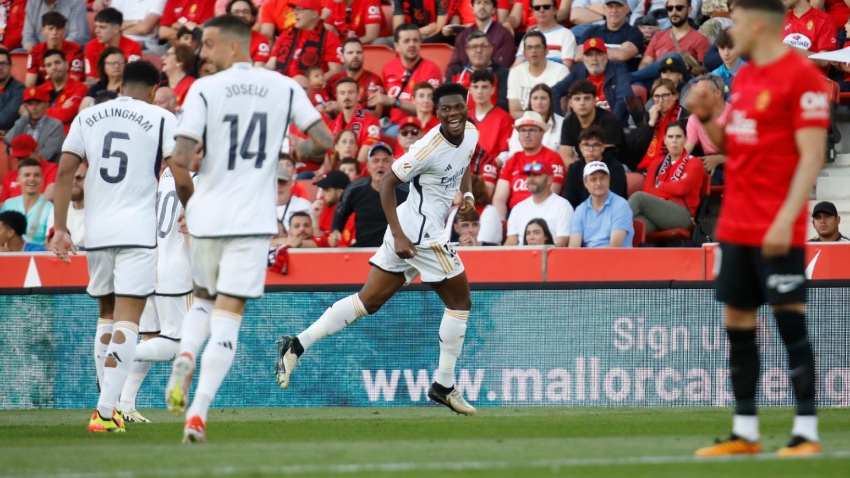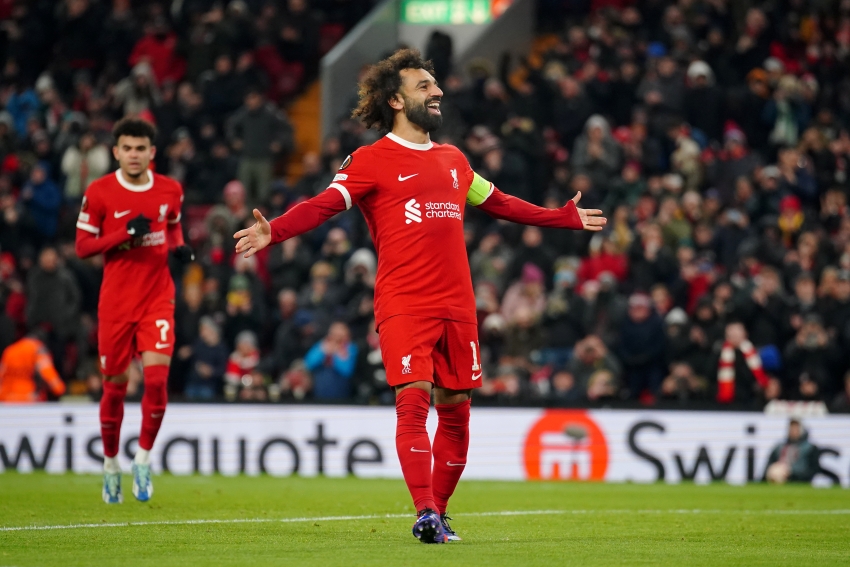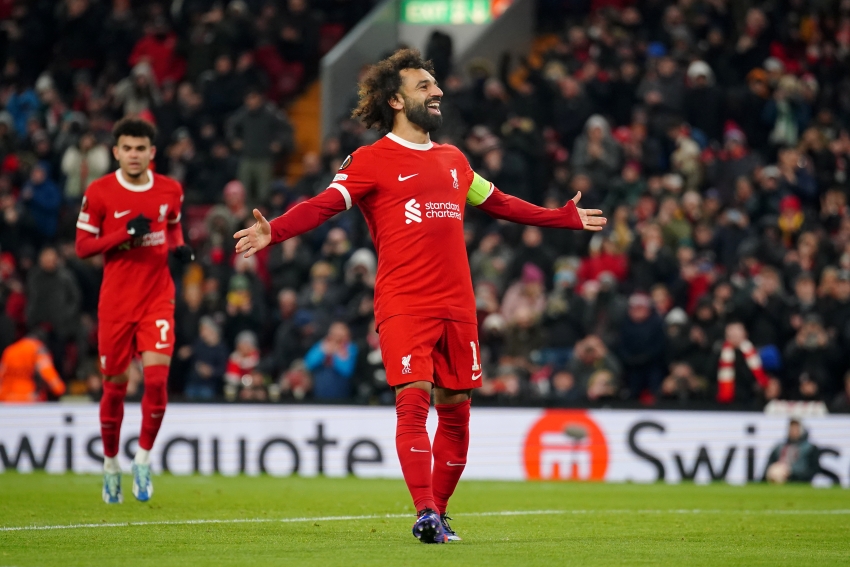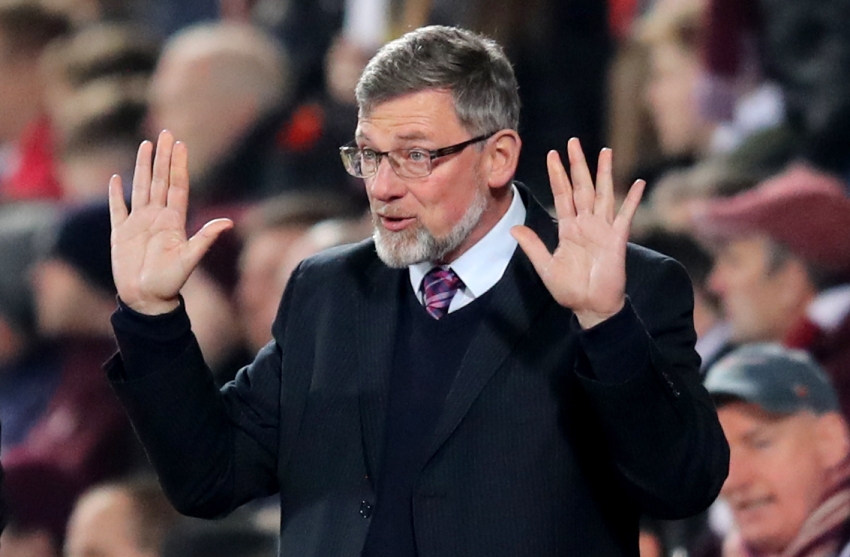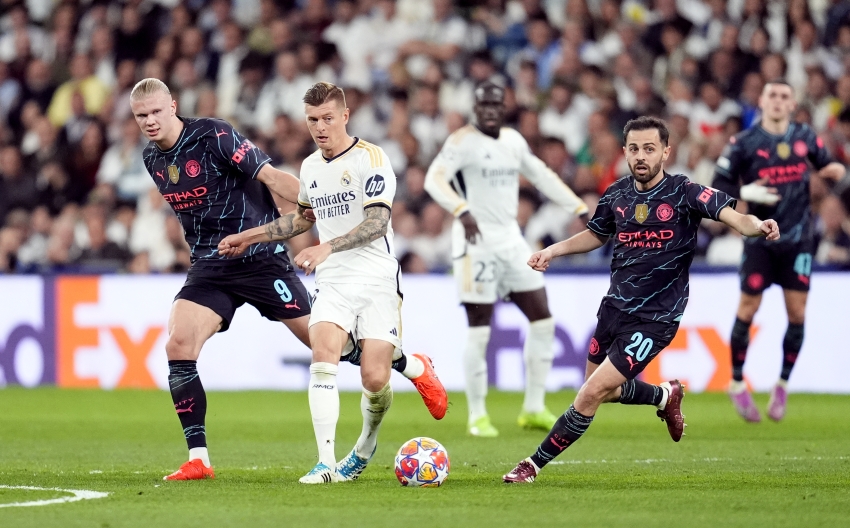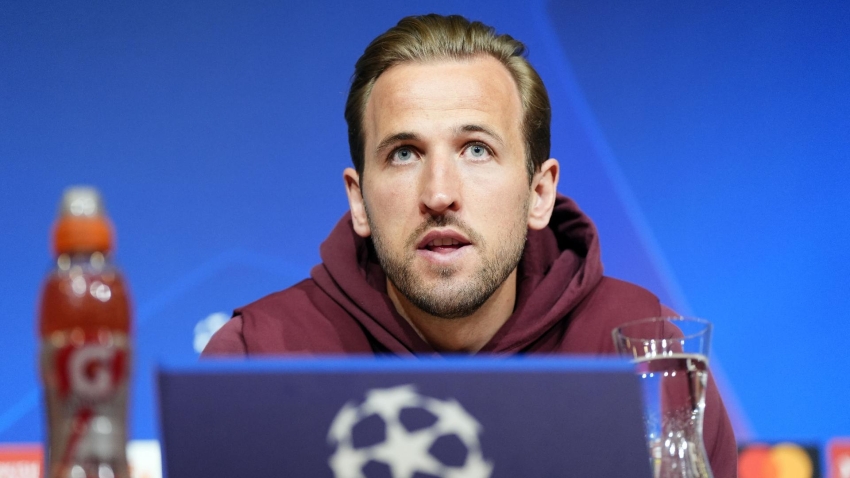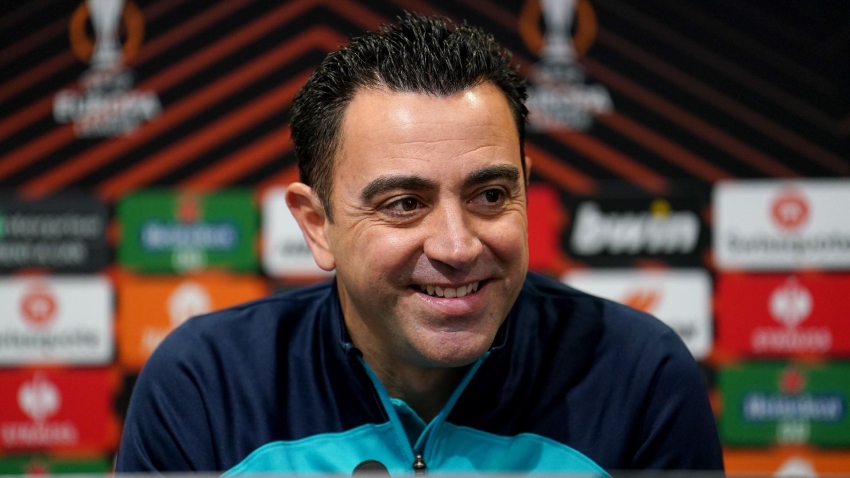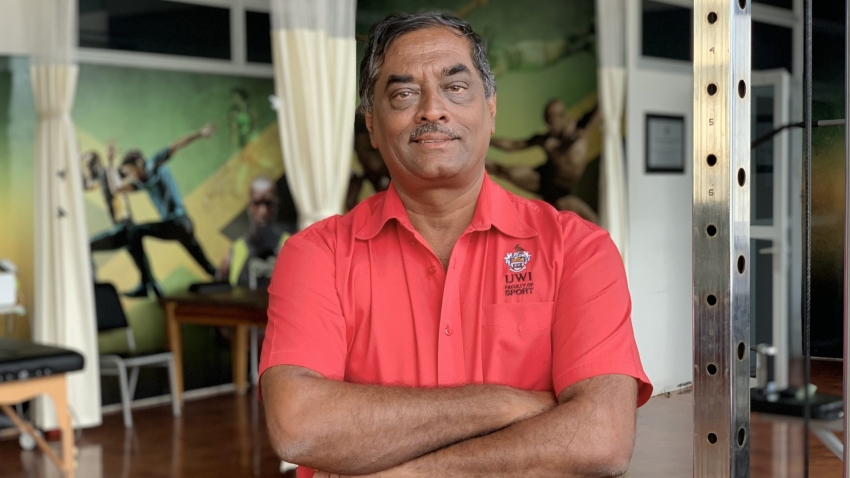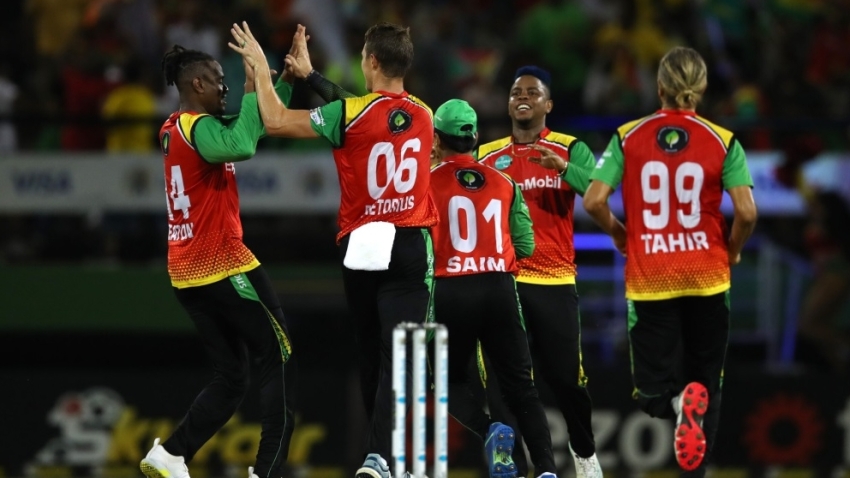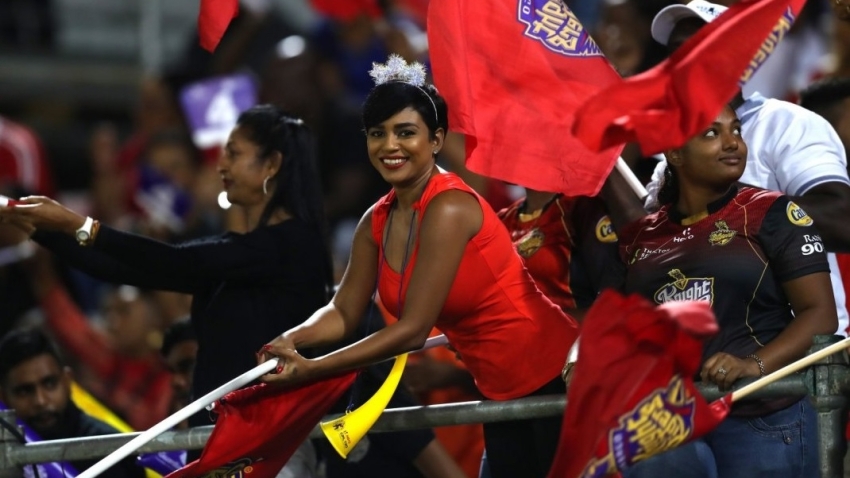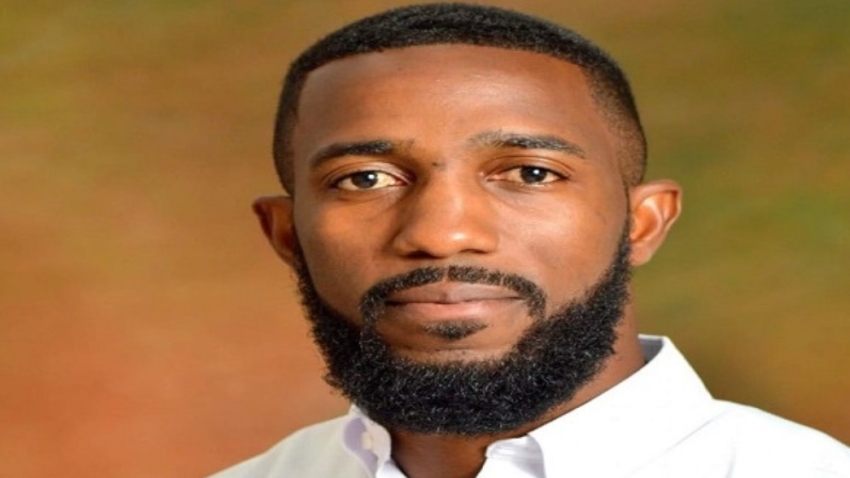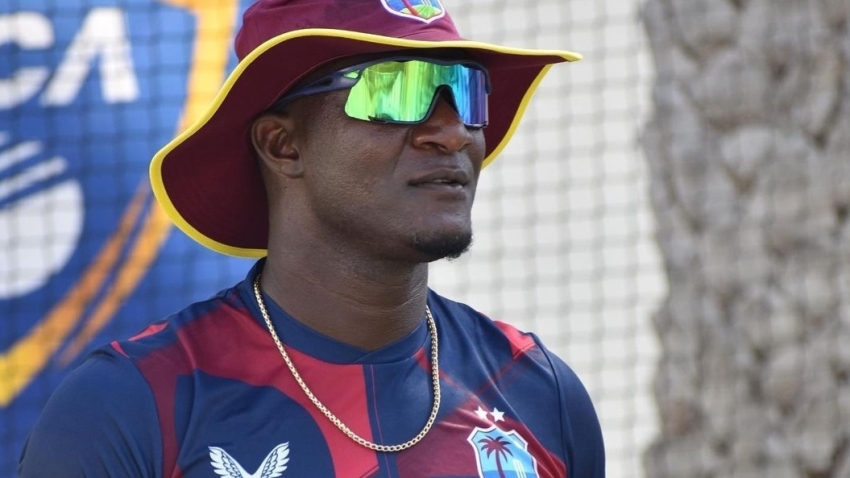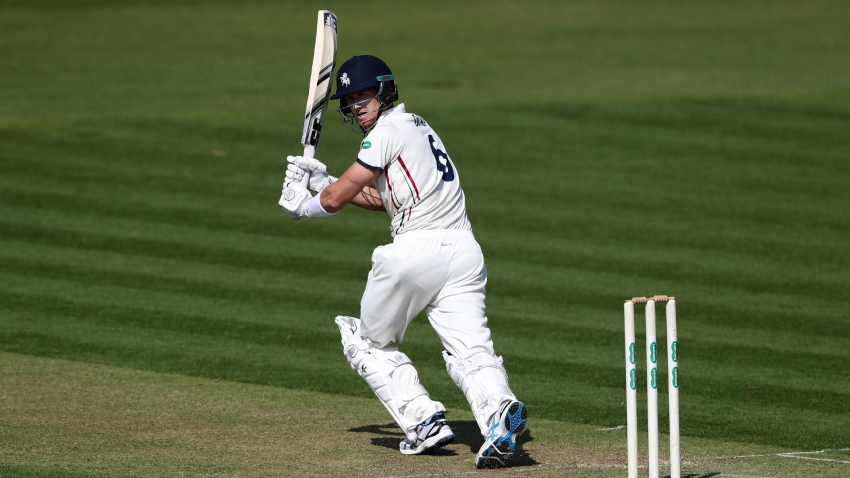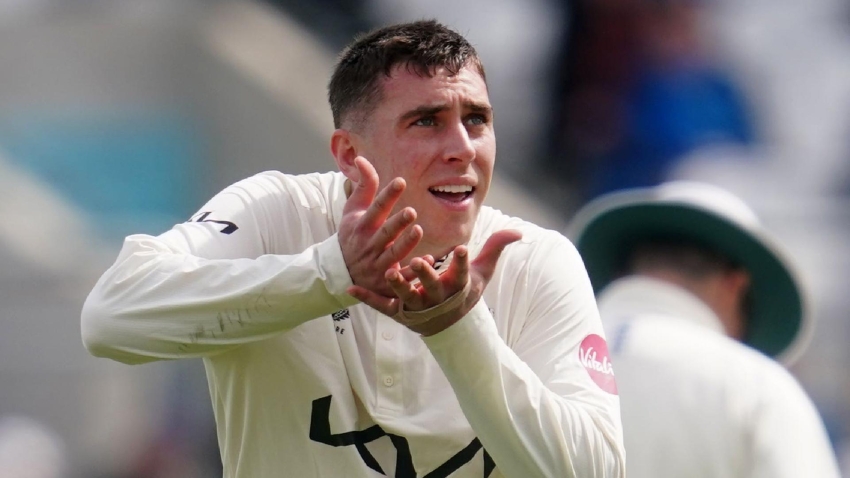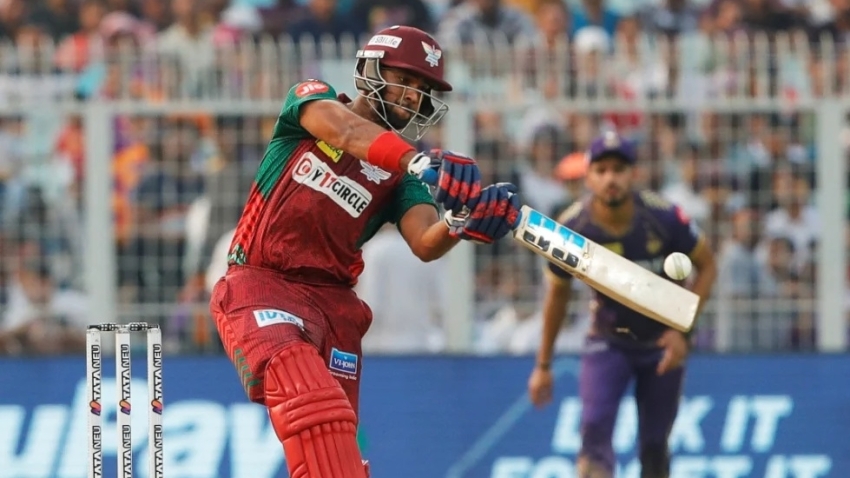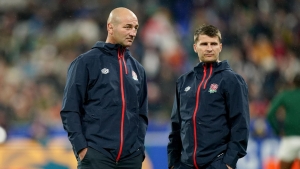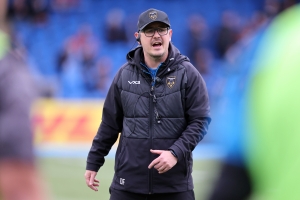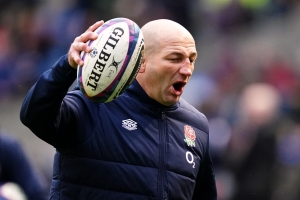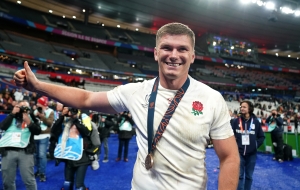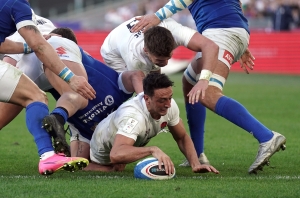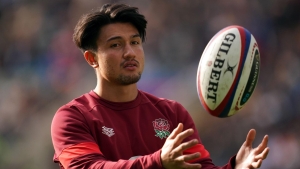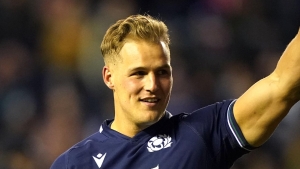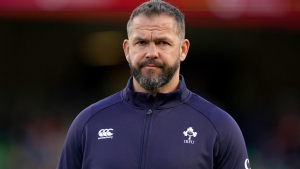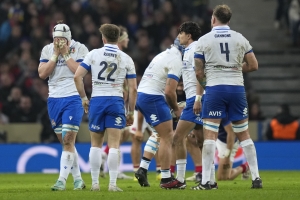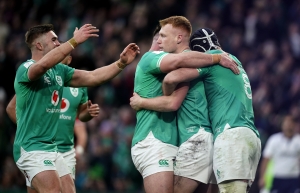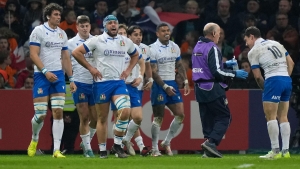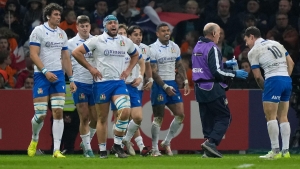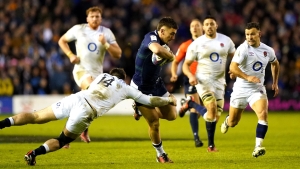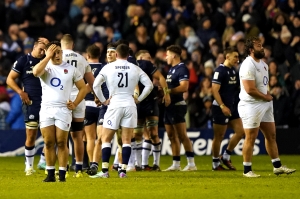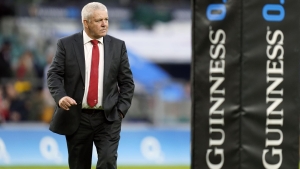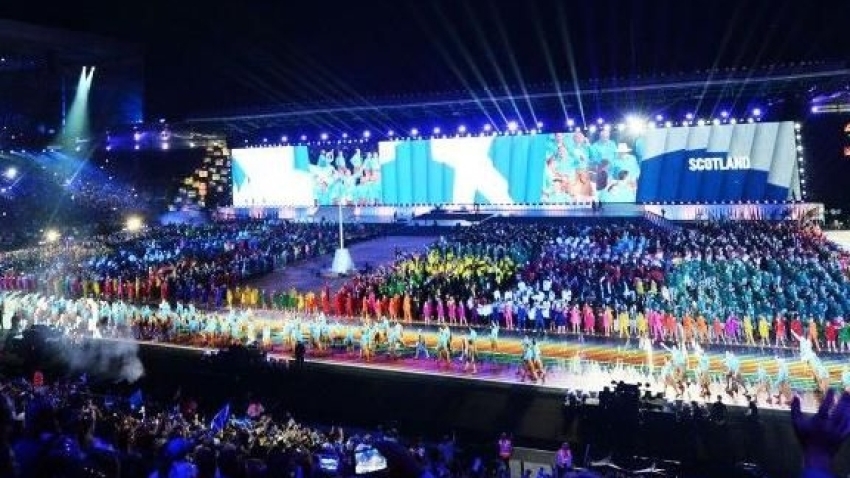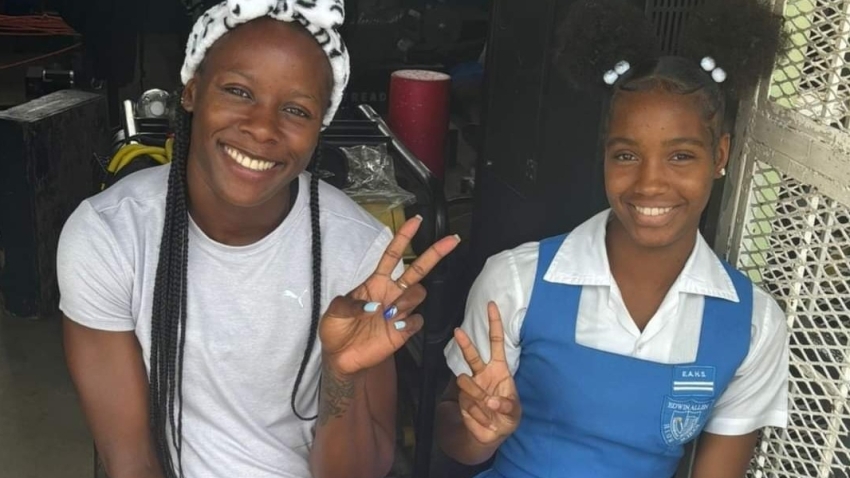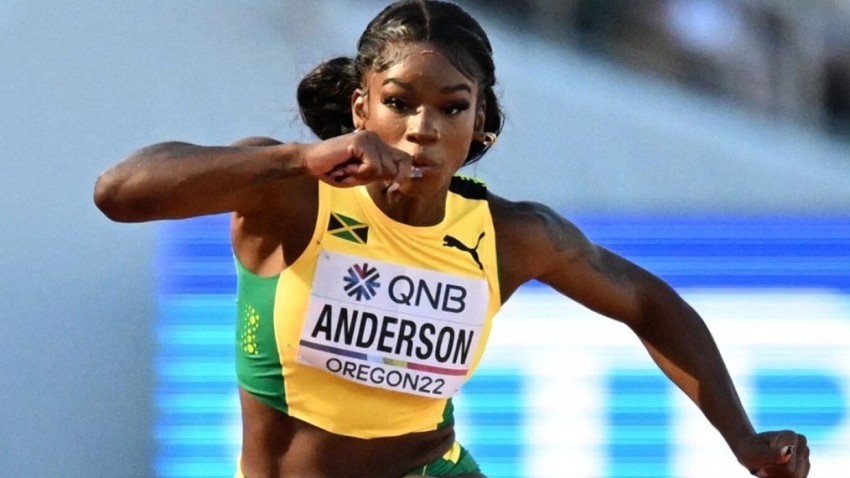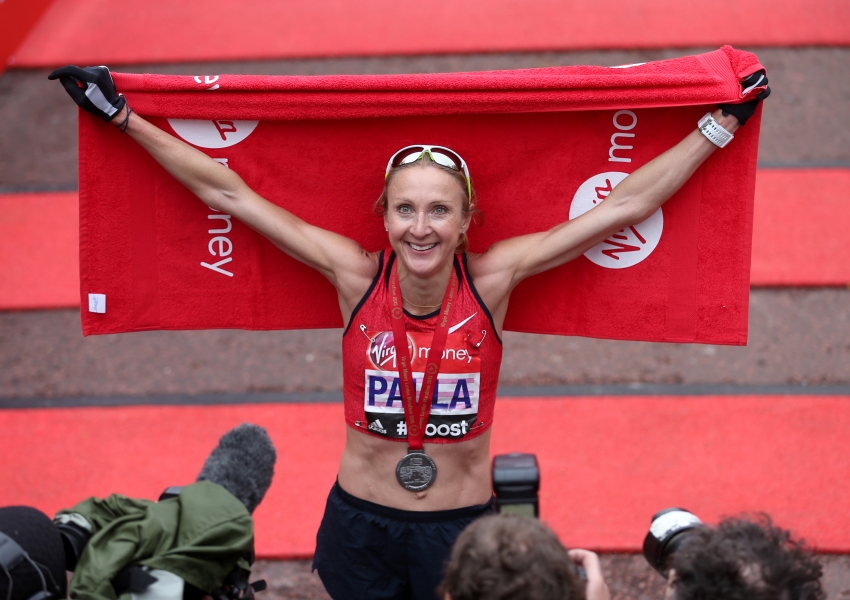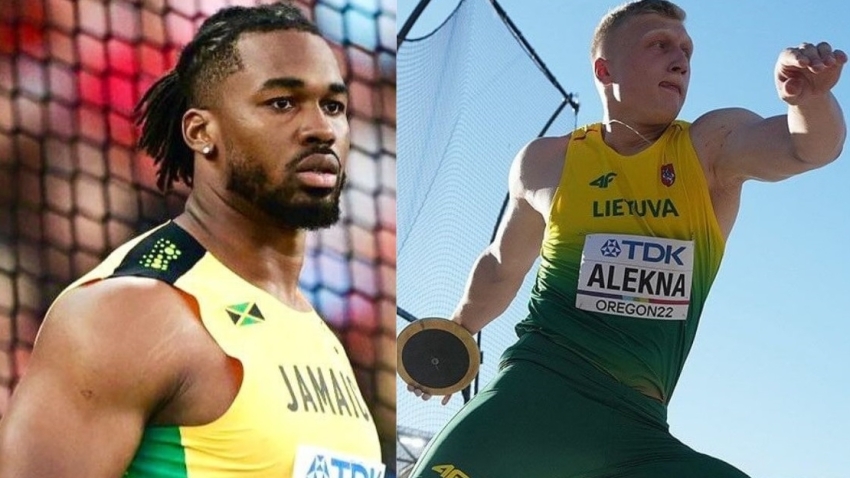Record-chasing Scotland wing Duhan van der Merwe is adamant he will not allow thoughts of personal glory to muddy his thinking when he runs out at Italy’s Stadio Olimpico.
The 28-year-old moved within one of Stuart Hogg at the top of the Scots’ all-time try-scoring list after producing a magnificent, match-defining hat-trick in Saturday’s 30-21 Calcutta Cup victory over England at Murrayfield.
Van Der Merwe went into this year’s Guinness Six Nations as Scotland’s sixth most prolific player, with 21 tries.
However, his five championship touchdowns over the past month – two away to Wales plus his treble on Saturday – have taken him ahead of Chris Paterson, Tony Stanger, Ian Smith and his Edinburgh team-mate Darcy Graham into second place.
One more score in dark blue will allow Van der Merwe to equal Hogg, who holds the record with 27 tries from his 100 caps.
The South Africa-born wing, who has got to 26 in just 37 appearances for the national team, is well aware of the big opportunity beckoning him but he insisted he will not allow it to cloud his focus or his decision-making as the Scots prepare to conclude their campaign away to Italy and Ireland next month.
“It’s something I targeted coming into the Six Nations, to see if I could do it (catch Hogg) in the Six Nations,” said Van der Merwe. “I knew it was a big task and there’s obviously still two games left… But the most important thing is the team, it’s not about myself.
“If that means I have to chase box-kicks and not score tries or give the pass to someone else, then so be it. It’s all about the team and us getting the wins.
“We want to start winning stuff as a team and the next two games are massive for us.”
Asked if he had allowed himself to ponder the possibility of making history in the iconic Stadio Olimpico in Rome a week on Saturday, Van der Merwe said: “It’s probably in the back of my mind, but I wouldn’t say I’m going into the game just thinking about myself and thinking about how I can score as an individual.
“For me, the team is always first. If that means I have to give the pass and not score myself, then I have to do it. If I don’t score but we get the win, I’ll be a happy man.”
Van der Merwe became the first player to score a hat-trick for Scotland in a Calcutta Cup match on Saturday. Incredibly, he now boasts a record of having played four matches against England and won them all. In total, he has scored six tries against the Auld Enemy since his first appearance in the fixture in 2021.
“I don’t know what it is, but I obviously love scoring against England so it’s pretty special,” said Van der Merwe. “It’s four wins out of four for me in this fixture. What an achievement that is, and it just shows you where this team is going.
“It’s obviously very special to score a hat-trick for Scotland, even moreso against England, but the most important thing was for the team to get the win.
“I obviously finished off a few opportunities but I’d say I made a few mistakes here and there. I wouldn’t say I was at my best but being a winger, I have to finish off the opportunities I get and luckily I was able to do that.”
Van der Merwe first arrived in Scotland in the summer of 2017 when former England player and coach Richard Cockerill signed him for Edinburgh despite the fact he failed to pass a medical due to a long-running hip injury.
Now in his second spell at Edinburgh after a stint at Worcester, the swashbuckling back is proud of the level he has been able to take his game to since he first moved to Scotland from Montpellier.
“Richard must be kicking himself, thinking ‘I brought this guy over, now he’s scoring tries against England’,” laughed Van der Merwe.
“I’ve been here (almost) seven years now and I guess when I look back, it’s all about hard work and dedication.
“When I come in on the bus and see all our fans at the stadium, I always think about how I can give back because Scotland has done so much for me.
“I guess the only way I can give back is with my performances. I absolutely love our fans and I love playing for Scotland.”


